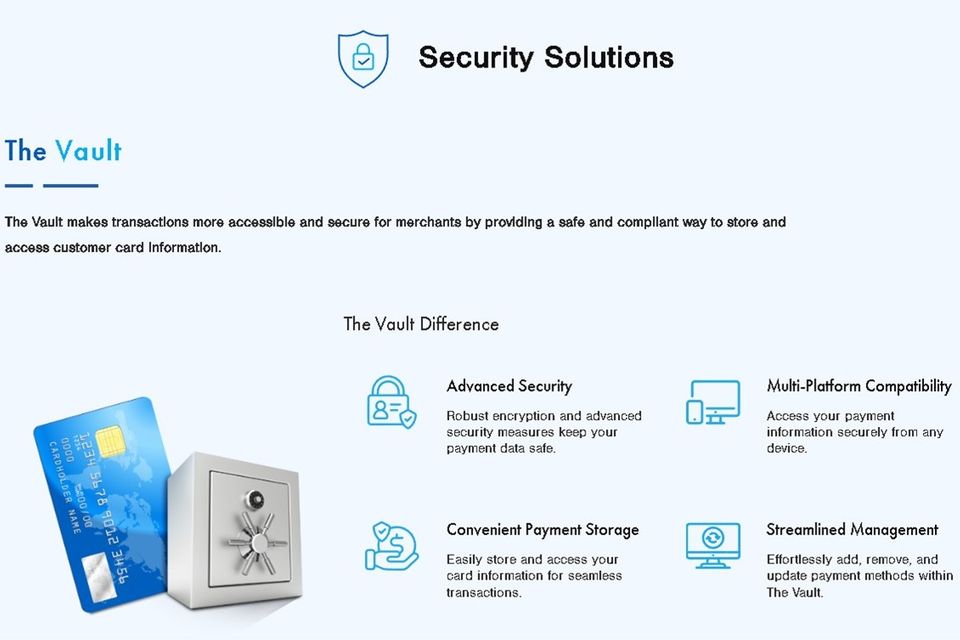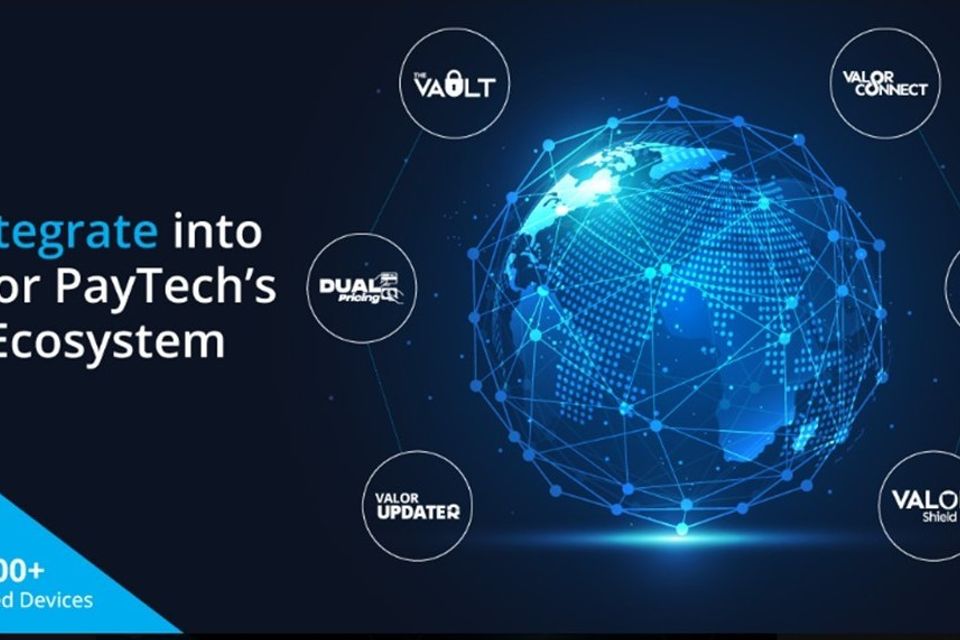Mastering Merchant Services
Mastering Merchant Services:
A Comprehensive Guide for Business Success
Table of Contents
- Introduction to Merchant Services
- The Evolution of Merchant Services
- Key Components of Merchant Services
- Choosing the Right Merchant Service Provider
- Setting Up Your Merchant Account
- Understanding Payment Processing
- Merchant Services Fees and Rates
- Enhancing Security with Merchant Services
- Leveraging Merchant Services for Growth
- Future Trends in Merchant Services
Chapter 1: Introduction to Merchant Services
Understanding Merchant Services
Merchant services encompass a wide range of financial services essential for modern businesses, enabling them to accept payments through various channels, including credit cards, debit cards, and electronic funds transfers. At the heart of any successful business operation, merchant services provide the necessary tools to process transactions smoothly and efficiently. These services not only facilitate seamless payment processing but also enhance the customer experience by offering multiple payment options. Whether you're a small business or a large enterprise, having robust merchant services is crucial to staying competitive in today's fast-paced market.
With the right merchant services, businesses can streamline their payment processes, reduce transaction times, and increase overall operational efficiency. This includes point-of-sale systems, payment gateways, and mobile payment solutions, all designed to cater to the diverse needs of businesses and their customers. Moreover, advanced security features within merchant services help protect sensitive customer information, reducing the risk of fraud and enhancing trust.
By leveraging comprehensive merchant services, businesses can improve cash flow management, track sales, and generate detailed financial reports, aiding in better decision-making and strategic planning. Optimize your business operations with reliable merchant services, ensuring smooth transactions and superior customer experiences. Choose the best merchant services to stay ahead in the competitive business landscape and drive your success.
Importance of Merchant Services
Merchant services are the backbone of any business that sells products or services. They facilitate transactions, enhance customer experience, and support business growth. In today’s competitive market, having a reliable merchant services provider is essential for the smooth operation of any business. These services enable businesses to accept a variety of payment methods, including credit cards, debit cards, and electronic funds transfers, ensuring that customers can pay in the way that is most convenient for them.
Understanding the various components and providers of merchant services can significantly optimize business operations and improve the bottom line. Key components include point-of-sale systems, payment gateways, and mobile payment solutions, all designed to streamline the payment process and reduce transaction times. By integrating these tools, businesses can enhance their efficiency and provide a seamless payment experience for their customers.
Moreover, advanced security features within merchant services help protect sensitive customer information, reducing the risk of fraud and building trust. This protection is vital in maintaining a positive reputation and ensuring customer loyalty. Additionally, detailed financial reporting and analytics offered by merchant services providers aid in better decision-making and strategic planning.
By leveraging comprehensive merchant services, businesses can not only improve cash flow management but also track sales more accurately and gain valuable insights into customer behavior. Investing in the right merchant services is crucial for any business aiming to stay competitive, drive growth, and achieve long-term success.
Overview of this guide
This comprehensive guide offers an in-depth understanding of merchant services, covering everything from essential concepts to advanced strategies. Ideal for both small business owners and large enterprises, it will help you navigate the complexities of merchant services, optimize your payment solutions, and leverage them for greater business success.
Chapter 2: The Evolution of Merchant Services
Historical Perspective
Merchant services have undergone remarkable transformation from their origins in barter systems and cash transactions. The mid-20th century saw the introduction of credit cards, which revolutionized payment methods and paved the way for the sophisticated merchant services we rely on today. This evolution includes advanced payment processing technologies, online transaction systems, and integrated point-of-sale solutions, all designed to streamline and enhance business transactions.
Technological Advancements
The rise of digital technology and the internet has dramatically reshaped merchant services. Innovations like mobile payments, online banking, and e-commerce platforms have revolutionized how businesses accept payments. These advancements enable businesses to process transactions seamlessly from anywhere in the world, enhancing convenience and expanding their reach. Embracing these technologies is crucial for businesses aiming to stay competitive and offer flexible payment solutions to their customers.
The Future of Merchant Services
As technology advances, the future of merchant services is poised for significant evolution. Emerging trends such as cryptocurrency payments, custom software-as-a-service (SaaS), biometric authentication, and artificial intelligence are set to transform payment processing. These innovations promise to enhance security, streamline transactions, and offer tailored solutions, enabling businesses to stay ahead in a rapidly changing financial landscape. Embracing these advancements will be crucial for future success.
Chapter 3: Key Components of Merchant Services
Payment Gateways
Payment gateways are essential online interfaces that enable the secure transfer of payment information between the customer, merchant, and payment processor. They are crucial for ensuring seamless and secure transactions, safeguarding sensitive data, and providing a smooth payment experience.
Point of Sale (POS) Systems
POS systems encompass the hardware and software used by businesses to execute sales transactions. Modern POS systems offer a range of features, including inventory management, sales reporting, and customer relationship management. These capabilities help businesses streamline operations and enhance customer interactions.
Merchant Accounts
A merchant account is a specialized bank account that allows businesses to accept payments through credit and debit cards. It serves as a crucial link between the customer’s bank and the merchant’s bank, facilitating smooth and efficient payment processing.
Payment Processors
Payment processors are companies responsible for managing the transaction process, ensuring that funds are securely transferred from the customer’s account to the merchant’s account. They handle the authorization and settlement of transactions, playing a key role in the payment ecosystem.
Chapter 4: Choosing the Right Merchant Service Provider
Factors to Consider
Selecting the ideal merchant service provider is essential for your business's growth and efficiency. Key factors to consider include transaction fees, contract terms, the quality of customer support, and the range of services offered. Ensure the provider meets your specific needs and offers value for your investment.
Top Merchant Service Providers
Thoroughly research and compare leading merchant service providers in the industry. Focus on those with a strong reputation, comprehensive security features, and a broad spectrum of services tailored to your business requirements. Additionally, seek out providers with a local representative or agent who can offer personalized support and service.
Making the Final Decision
Carefully evaluate your shortlisted options to select a provider that aligns with your business objectives and budget. Choosing the right merchant service provider can significantly enhance your payment processing efficiency and contribute to your overall business success. Make an informed decision to support your growth and operational excellence.
Chapter 5: Setting Up Your Merchant Account
Application Process
Setting up a merchant account begins with submitting an application to a merchant service provider. This application typically requires detailed business information, financial records, and compliance documentation. Ensuring that all required information is accurate and complete will streamline the process and expedite approval.
Approval Criteria
Merchant service providers assess several factors before approving your merchant account, including your business type, credit history, and anticipated transaction volume. Understanding these criteria can help you prepare a compelling application and improve your chances of approval. A strong application often includes a solid business plan and financial stability.
Integration with Existing Systems
After your merchant account is approved, the next step is integrating it with your existing systems. This may involve configuring payment gateways, point-of-sale (POS) systems, and other essential tools to enable seamless payment processing. Proper integration ensures smooth transactions and enhances the efficiency of your payment operations.
Chapter 6: Understanding Payment Processing
Transaction Flow
Understanding the payment transaction flow is essential for managing your payment processing system effectively. This flow includes critical stages such as authorization, capture, clearing, and settlement. Each stage plays a role in ensuring that payments are processed accurately and efficiently, contributing to smoother operations and enhanced customer satisfaction.
Types of Transactions
There are different types of transactions that businesses need to handle, including card-present and card-not-present transactions. Card-present transactions occur when the customer physically swipes or inserts their card, while card-not-present transactions occur online or over the phone. Each type requires specific processing methods and security measures to prevent fraud and ensure a secure payment experience.
Handling Chargebacks
Chargebacks happen when a customer disputes a transaction, leading to the reversal of funds. Effectively managing chargebacks involves understanding the dispute process, providing necessary documentation, and implementing preventive measures to reduce their occurrence. Properly handling chargebacks helps minimize financial losses and maintains a positive relationship with your merchant service provider.
Chapter 7: Merchant Services Fees and Rates
Understanding Fees
Merchant services involve various fees that can impact your bottom line, such as transaction fees, monthly fees, and incidental fees. Transaction fees are charged per payment processed, monthly fees cover account maintenance, and incidental fees may arise from specific services. Understanding these fees is crucial for effective budgeting and avoiding unexpected costs, ensuring that your payment processing setup remains financially manageable.
Comparing Rates
To find the most cost-effective merchant services for your business, it's essential to compare rates from different providers. Evaluate both fixed costs, like monthly fees, and variable costs, such as per-transaction fees. By thoroughly comparing these rates, you can select a provider that offers the best value for your specific needs, optimizing your payment processing expenses.
Negotiating Terms
Merchant service providers often offer negotiable terms, so don’t shy away from negotiating for better rates and conditions. Negotiating can help you secure more favorable terms, lower fees, and additional services. By advocating for your business, you ensure that you’re getting the best possible deal for your payment processing needs.
Chapter 8: Enhancing Security with Merchant Services
Importance of Security
In payment processing, security is crucial. Protecting customer data and transactions from fraud not only safeguards your business but also builds trust with your customers. Ensuring robust security measures helps prevent data breaches and financial losses, which are essential for maintaining a credible and trustworthy business reputation.
PCI Compliance
The Payment Card Industry Data Security Standard (PCI DSS) provides a framework for securing credit card information. Adhering to PCI DSS requirements is mandatory for any business handling card payments. Compliance ensures that your payment systems meet industry standards for data protection, minimizing the risk of data breaches and enhancing overall security.
Advanced Security Measures
To bolster the security of your payment processing system, implement advanced security measures such as encryption, tokenization, and fraud detection tools. Encryption protects data during transmission, tokenization replaces sensitive data with secure tokens, and fraud detection tools identify and mitigate suspicious activity. Adopting these measures is essential for safeguarding your business and enhancing customer confidence.
Chapter 9: Leveraging Merchant Services for Growth
Optimizing Payment Processes
Enhance your business efficiency and customer satisfaction by optimizing your payment processes. Streamlining payments can include offering various payment options and ensuring quick, reliable transaction processing. For instance, utilizing cloud-based merchant processing allows you to manage all payment channels through a single merchant account, simplifying management and tracking for seamless operations.
Expanding Payment Options
Broadening your acceptance of payment methods, such as mobile payments and digital wallets, can draw in more customers and boost sales. Just as credit cards were introduced to simplify purchases, staying updated on emerging payment trends ensures that transactions remain convenient and appealing to your clientele.
Analyzing Transaction Data
Leverage transaction data from your merchant services to uncover valuable insights into customer behavior, sales patterns, and operational efficiencies. This data-driven approach supports informed decision-making and fosters business growth. Investing in an advanced merchant services system that automates data collection and analysis makes the process efficient and effective, helping you use insights to your advantage effortlessly.
Chapter 10: Future Trends in Merchant Services
Emerging Technologies
Stay ahead with “My Local CC Agent,” where we keep you updated on the latest advancements in merchant services. Emerging technologies like blockchain, machine learning, and quantum computing are set to revolutionize payment processing. Additionally, we explore the impacts and benefits of Buy Now Pay Later (BNPL) loans for your business and customers.
Adapting to Change
The payment processing landscape is ever evolving. Follow our weekly blog to stay informed and ready to adapt to new trends and technologies. This will ensure you remain competitive and capable of meeting your customers' changing needs.
Strategic Planning
Our weekly blog on merchant services will guide you in developing a strategic plan to integrate future trends into your business operations. This proactive approach will help you leverage the latest advancements in merchant services for continued success.
By understanding and leveraging merchant services, businesses can enhance payment processing capabilities, improve security, drive growth, and increase profits. This outline of merchant services serves as a guide for future posts, providing a reference to navigate the complexities of merchant services and achieve business success. Stay tuned for upcoming posts designed to give you a strategic business advantage using your merchant services.


